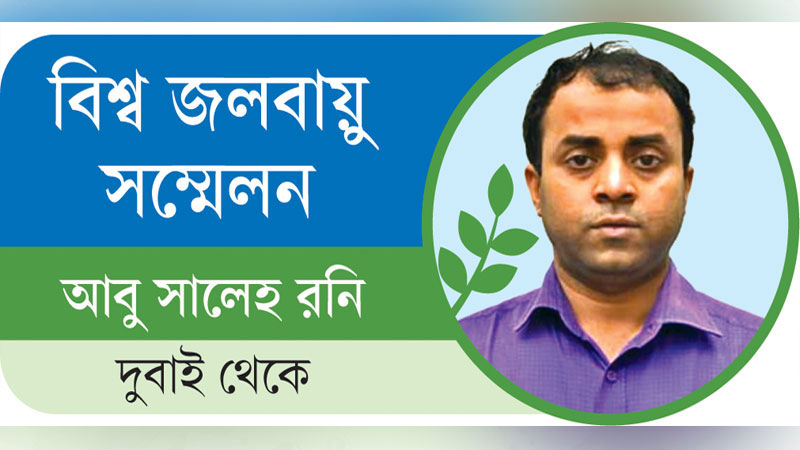Jibashma (biomass) combustion is heavily relied upon worldwide, including in Bangladesh. The presence of coal and natural gas is also increasing. In this context, environmentalists, including the United Nations, have been advocating for the enhancement of renewable energy capabilities for the past few years. While various countries may not unanimously agree due to diverse perspectives on global viewpoints and economic capacities, the recent United Nations Climate Conference (COP28) saw approval from 118 countries. These nations pledged to triple the capacity of renewable energy by 2030 globally. The summit, held in Dubai, witnessed the signing of the ‘Global Acceleration for Decarbonization Agreement’ on the fourth day of COP28.
However, Bangladesh has not yet made any decision on this matter. Apart from the conference, the Asian Development Bank (ADB) announced investments in the Green Hospital Project and Vaccine Production Facility in Bangladesh during a side event.
To know about the agreement on renewable energy, Sanjoy Kumar Bhattacharya, Additional Secretary (Climate) at the Ministry of Environment and Climate Change, stated, “We have not received any proposal on this matter yet. If a proposal comes through the government, discussions will be held at the highest level before making a decision.”
This agreement aims to increase the global capacity of renewable energy from the current 3.4 terawatts in 2022 to 11 terawatts by 2030. Signatory countries committing to this promise include the United Arab Emirates, the United States, Brazil, Japan, the United Kingdom, Mexico, Poland, Germany, Australia, Canada, Denmark, France, Kenya, the Netherlands, Nigeria, and Spain. However, countries like Turkey, China, India, and South Africa have not yet signed. Additionally, 50 major companies involved in oil and gas production have signed this decarbonization agreement, contributing to more than 40% of global oil and gas production. As part of this agreement, a commitment of $1 billion has been made for the Methane Reduction Erosion Project.
On the fourth day of the conference, Mayor Atiqul Islam of Dhaka North City Corporation participated in a session representing Bangladesh. During the event, he emphasized the urgent need to address the impact of climate change on cities directly.
In another commitment, the United Arab Emirates pledged $100 million to the Global Fund for the Fight Against Climate Change (NTDI) to combat climate-related diseases. Discussions on the conservation of safe water and nature were also held yesterday.
For the first time, religious leaders worldwide have come together to announce initiatives to prevent climate change. The Faith Pavilion was inaugurated at COP28 in Dubai, where leaders of all faiths joined forces to take steps against global warming. Grand Imam Ahmed Muhammad Ahmed al-Tayyeb of Al-Azhar, through a video message, and Pope Francis emphasized the urgency of immediate action against climate change.
This summit, which began on November 30 at the Expo City in Dubai, will continue until December 12. Approximately 200 representatives from nearly 200 countries are participating. Additionally, during a side event of the conference, the Asian Development Bank (ADB) announced an investment in the Green Hospital Project to protect health in Bangladesh from the adverse effects of climate change. The Vice President of ADB, Fatima Yasmin, presented the main discourse. Following this, the Health and Family Welfare Minister of Bangladesh, Zahid Maleque, announced the investment in establishing a vaccine production facility in Bangladesh by the organization.
Health Secretary Jahangir Alam of Bangladesh, Climate and Health Specialist Dr. Luís Augusto Galvão from Brazil, and Professor Catherine Bowon of the University of Melbourne were prominent participants in the discussion.

